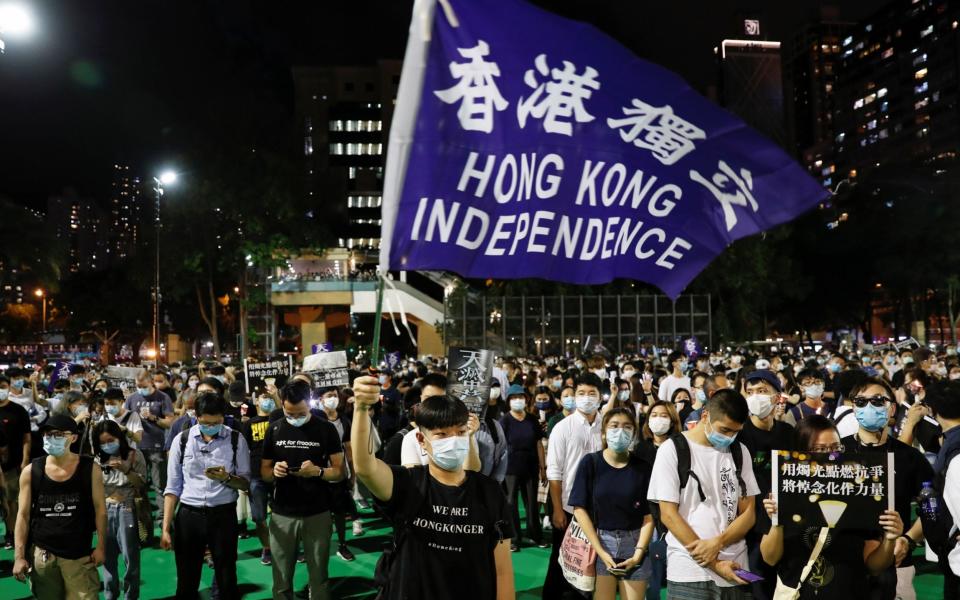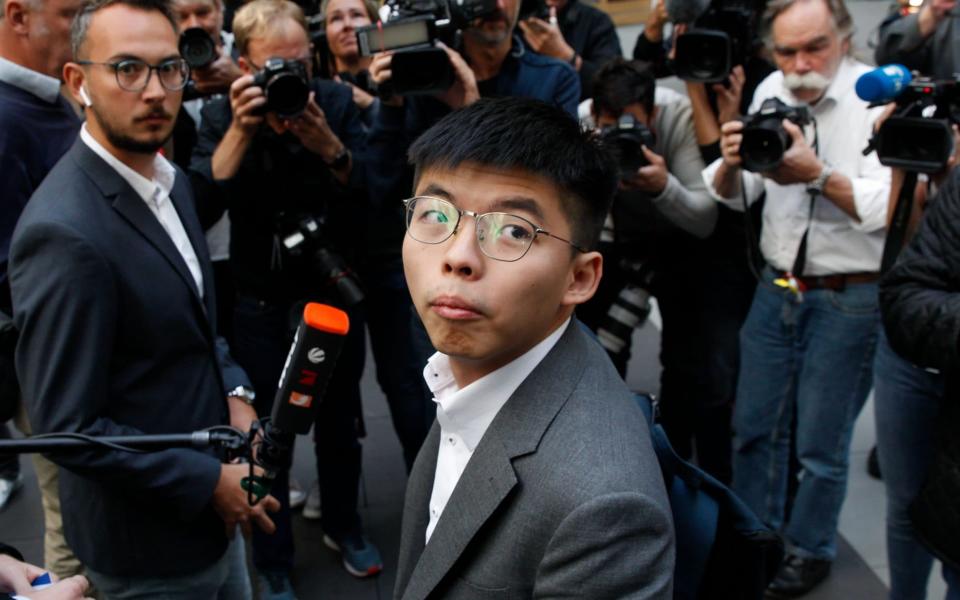Chris Patten accuses China of 'mafia'-style tactics as HSBC row escalates

The last British governor of Hong Kong has accused China of using "mafia"-style tactics to bully British banks into backing a controversial new security law that will stifle dissent.
Chris Patten hit out at Beijing's cheerleaders for trying to force Western companies into line, amid growing criticism of HSBC and Standard Chartered for backing a draconian crackdown on the territory's freedom.
Lord Patten would not comment specifically on the banks' decisions. But he said: "It's a bit like dealing with the mafia and I sympathise with people who feel they have to go along with it."
The peer contrasted the Beijing regime's approach with that of Britain, where banks have been strongly critical of the government over the post-Brexit loss of so-called passporting rights allowing them to sell financial services onto the Continent.
He said: "Imagine what would happen if we [the UK] said the Bank of China and other Chinese banks in London must now say they support the British government's proposals on passports otherwise we'll stop allowing them doing business here. "
HSBC - which champions British values in the UK through an advertising campaign with the slogan "We are not an island" - was this week condemned by democracy campaigners for supporting the new law. Fellow London-based bank Standard Chartered also backed the legislation.
HSBC's support came days after Leung Chun-ying, Hong Kong’s pro-Beijing former leader, demanded that the lender state its position.
He said its privileges in Hong Kong “should not be taken for granted” and warned that the lender could “be replaced by banks from China or other countries overnight”.
Lord Patten, who last week called for a United Nations special envoy to be appointed to defend human rights in the city, said it was unthinkable to imagine those tactics being used in the UK.

Joshua Wong, the leader of Hong Kong's pro-democracy protests, warned that more companies could follow suit.
He said: "It is forseeable that more companies are forced to kowtow to Beijing once the law is implemented in the city. Under Beijing's tightening grip, Hong Kong is no longer an autonomous city for investors and expats."
London-listed HSBC was founded in Hong Kong in 1865 to support international trade between China and Europe and makes almost all its profits in Asia.
One former British security official described the decision by HSBC and Standard Chartered as "depressing", adding: "Banks seem to have decided to collude with a Beijing policy that will inevitably lead to the decline of Hong Kong. They must be calculating that this is a price worth paying for access to China, but that may be shortsighted as well as unethical."
The move also attracted criticism in the US. Rick Scott, a Republican senator for Florida, tweeted that HSBC had "chosen profits over human rights".
The bank is already on thin ice with US authorities after nearly losing its dollar licence in 2012 due to money laundering by Mexican drug cartels.
Mr Scott said: "Siding with Communist China in its latest effort to deny autonomy and human rights to the people of Hong Kong is dangerous and shameful. We will not forget it."
Tensions have risen this week after a vigil marking the Tiananmen Square massacre in 1989 was cancelled due to coronavirus, leading Amnesty International to accuse the police of exacerbating tensions ahead of the "disastrous" security law.
Earlier this week spokespeople for HSBC and Standard Chartered said that they supported laws which maintain Hong Kong's "one country, two systems" principle while rebuilding its long-term economy.

 Yahoo Finance
Yahoo Finance 